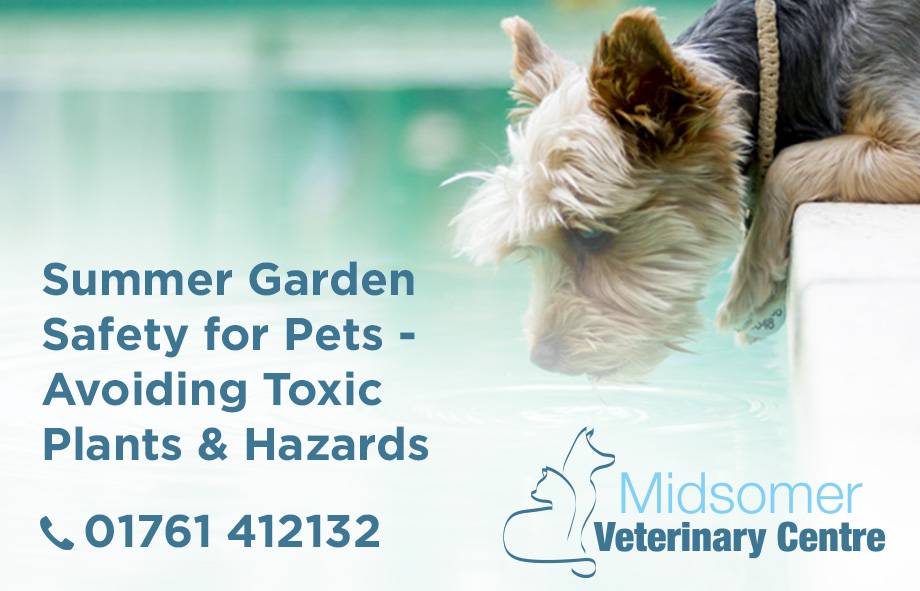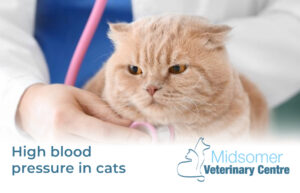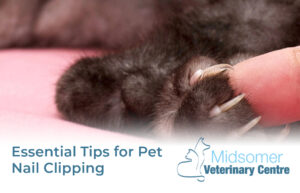As summer approaches, many pet owners look forward to spending quality time in their gardens with their beloved pets. However, it’s crucial to be aware of potential hazards that can lurk in our gardens, especially toxic plants, and take necessary precautions to keep our pets safe. This blog aims to provide essential summer garden safety tips to ensure your pets enjoy a hazard-free and enjoyable time outdoors.
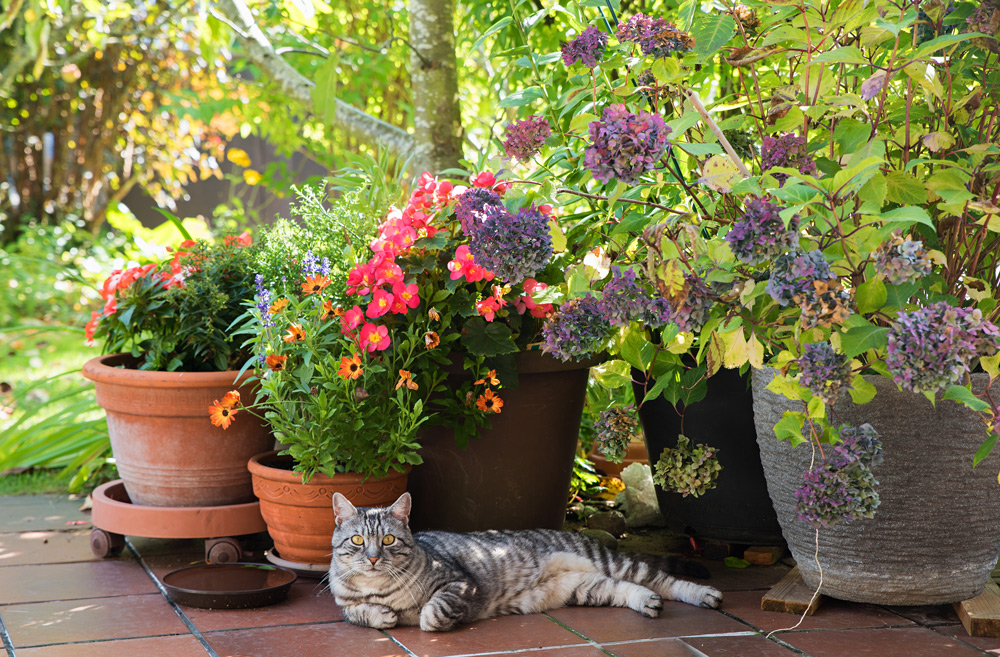
Identify and Remove Toxic Plants
Several common garden plants can be toxic to pets if ingested. It’s essential to identify these plants and remove them from areas accessible to your furry companions.
Some common examples include:
- Lilies
- Azaleas
- Rhododendrons
- Tulips
- Daffodils
- Sago palms
Although the listed above are the most common dangers, it’s always better to be safe than sorry. In order to verify exactly which plants are toxic in your garden, it may require further research, and the ASPCA offers a great resource to search for specific plants toxicity here.
Create a Pet-Friendly Zone
Designate a pet-friendly area in your garden where your pets can roam and play safely. This area should be free from toxic plants, pesticides, fertilisers, and other potential hazards. Ensure it is securely fenced to prevent pets from wandering off and protect them from outside dangers.
Use Pet-Safe Pesticides and Fertilisers
If you must use pesticides or fertilisers in your garden, opt for pet-safe and environmentally friendly products. Avoid using chemicals known to be toxic to animals, as pets can ingest them by licking their paws or fur. Always follow the instructions provided by the manufacturer and keep pets away from treated areas until the products have dried or settled.
Secure Potential Escape Routes
Check your garden for any escape routes your pets might find, such as loose fences, gaps in hedges, or broken gates. Fix these issues promptly to prevent your pets from escaping and getting lost or injured.
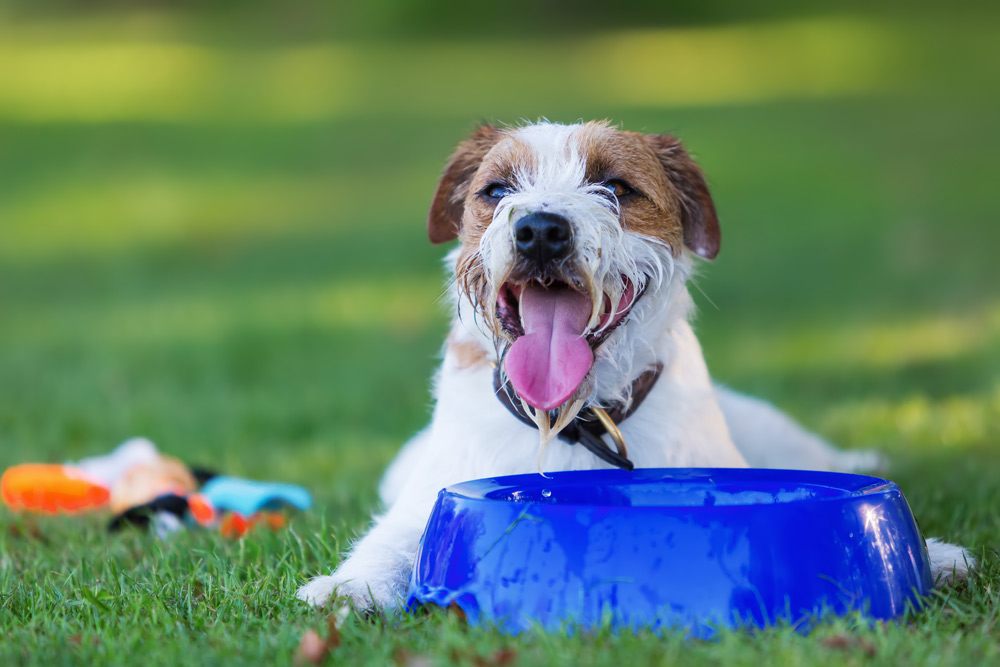
Provide Shade and Fresh Water
During hot summer days, pets need a shaded area in the garden to seek relief from the sun’s heat. Create a shady spot with a canopy, umbrella, or trees. Additionally, always ensure your pets have access to fresh, clean water to stay hydrated. Keep multiple water sources around the garden, especially if you have a large outdoor space.
Watch out for Heatstroke
Pets can quickly succumb to heatstroke in the scorching summer months. Cats are usually good at looking after themselves if they have the freedom to come and go, but for other pets, such as dogs, rabbits, and guinea pigs, avoid leaving them in the garden for extended periods during the hottest parts of the day. Signs of heatstroke in dogs include excessive panting, lethargy, drooling, and difficulty breathing. If you suspect heatstroke, move your pet to a cool area, offer water, and seek veterinary assistance immediately.
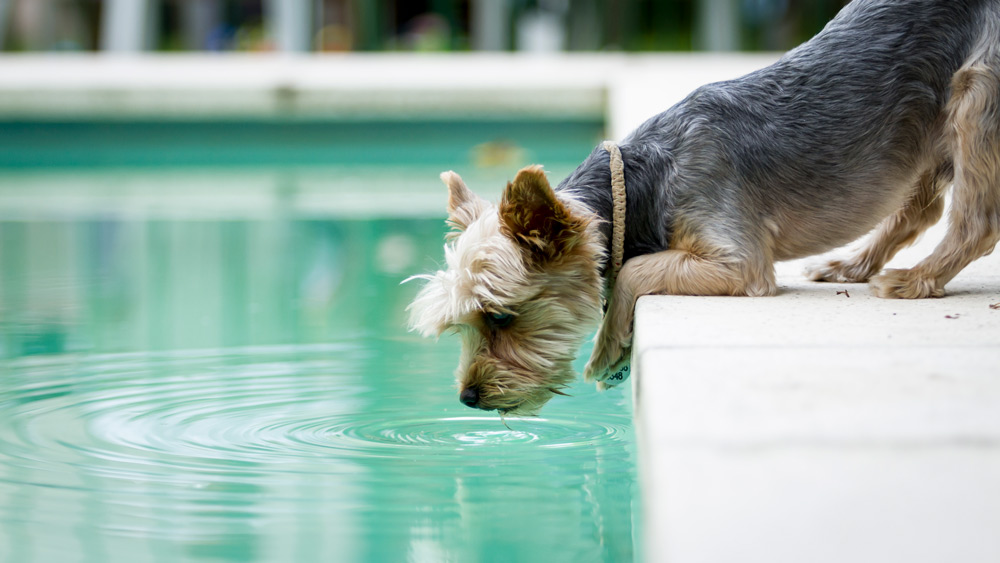
Beware of Ponds and Pools
While water features can add beauty to your garden, they can also pose a danger to pets. Ensure that ponds and pools have secure barriers or covers to prevent accidental drowning. Pets should always be supervised when near water to avoid any mishaps.
Be aware of natural predators
Gardens are a natural space and, as such, are also a haven for wild animals and birds. Ensure your pet is kept safe from foxes, angry or hungry birds and other creatures that might view them as lunch or threats.
With these summer garden safety tips, you can create a pet-friendly oasis where your pets can enjoy the outdoors without unnecessary risks. By removing toxic plants, securing potential hazards, providing shade and water, and being mindful of heatstroke and water features, you can ensure your pets have a safe and enjoyable summer in the garden. Remember, a little precaution goes a long way in keeping our pets healthy and happy!
